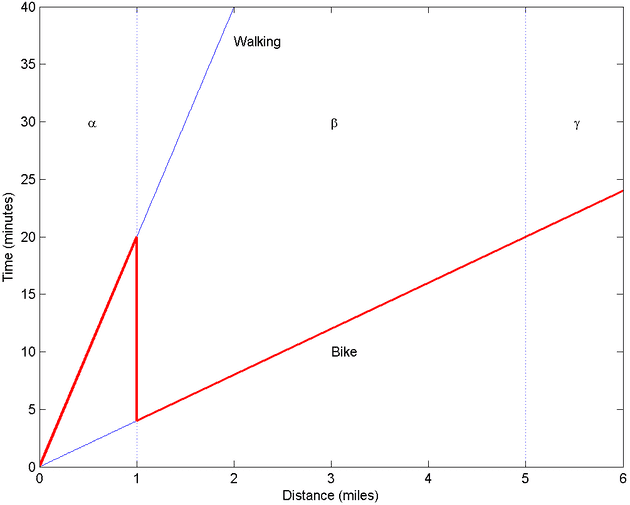Region-beta Paradox: People can be better off when things are much worse. While moderate situations prompt endurance, crisis triggers action.
Article: Region-Beta Paradox: When “It’s Not That Bad” Is That Bad
When we are really unhappy with our job, we are more likely to start looking for a new job. If we are just a little unhappy, we are more likely to stay in our current job because it is comfortable and we know what to expect. However, we may end up regretting our decision to stay later. We waste years enduring the situation by not wanting to waste hours to make the move.
This is an example of the Region-beta Paradox, which originates in the paper by Daniel Gilbert et al. They consider a commuter who typically walks to destinations if it's within a mile and biking to destinations that are farther away. Because biking is faster than walking, the commuter will arrive faster at some distant locations (region beta in this diagram) than they would at closer destinations, which goes against the expectation that travel time increases with distance.
https://en.wikipedia.org/wiki/Region-beta_paradox#/media/File:Region-beta_paradox_cropped.png
We can find this paradox in various situations, such as staying in a suboptimal romantic relationship or tolerating a mediocre health condition. We take action when things are really bad, while we endure when things are just okay. This also reminds me of the quote, "There are no two words in the English language more harmful than 'good job'." from the movie Whiplash that I noted in #7.3.
